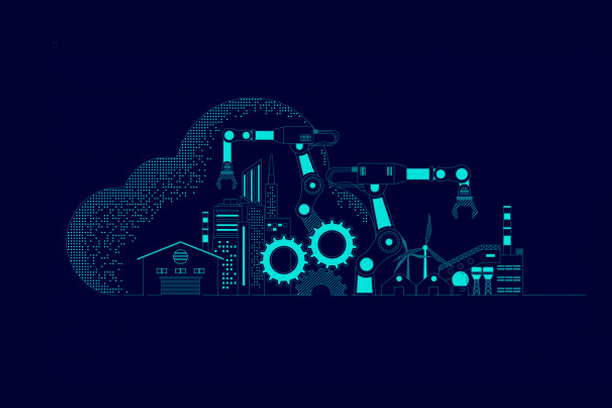Industry 4.0 refers to a new phase in the Industrial Revolution that represents a new stage of automation, interconnectivity and real time data of the industrial value chain. The industry 4.0 aims to make manufacturing and corelated industries – faster, highly flexible, individualized and resource friendly mass production. While at the same time going beyond industrial automation and optimization and detecting new opportunities.
Evolution of Industry
Before digging into Industry 4.0, it’s beneficial to take a look back at the history of industrial revolution since 1800s. Here is a brief premier on the four industrial revolutions that the world has experienced and continuous to experience.
The First Industrial Revolution
The first industrial revolution happened between the late 1700s and early 1800s. The first use of steam engines and the intelligent application of hydropower systems optimized the production process.
The Second Industrial Revolution
In the early part of the 20th century, the world entered a second industrial revolution with the introduction of electrical engineering and mass production. Conveyer belts were introduced at that time and concept of mass production lines like assemblies were introduced.
The Third Industrial Revolution
Starting in mid-1970’s, third industrial revolution slowly began to emerge, as electronics and IT began to rapidly expand in industries. Manufacturers started to shift towards digital and computer-based systems rather than mechanical technology.
The Fourth Industrial Revolution
The Fourth industrial revolution has emerged in the past few decades. Industry 4.0 is the digital transformation of manufacturing and other industries. Its goal is to provide better interconnectivity and high flexibility in the mass production lines. Industry 4.0 is based upon cyber physical systems enabled by Industrial IoT that allows connectivity among all systems, materials and devices in a comprehensive network so that they can easily communicate and control each other. Cyber-physical systems create the capabilities needed for smart factories.
Connected environment
Industry 4.0 is the transformation of manufacturing industries in a connected environment of IIOT, AI, Big data, cloud computing, robotics, cybersecurity and integrated systems as a way to realize smart industry.
Benefits of adopting Industry 4.0
Industry 4.0 connects physical with digital systems, which allows collaboration and access across departments, product, vendors and people. This allows business owners to get a better understanding over aspect of their operation which improves productivity and efficiency, better flexibility, and increased profitability.
The benefits of Industry 4.0 should always be central to any discussion. Above all, any investment you make in this technology, for improved manufacturing process and higher efficiency, should deliver a return.
Here are the main benefits of adopting Industry 4.0 to your production lines and your business.
Improved productivity and efficiency – less machine downtime as well as the ability to make products faster and accurate with fully automated intelligent production lines.
Better Connectivity – Cyber physical systems provide interconnectivity among all the devices, products and physical systems through a comprehensive network.
High flexibility- Industry 4.0 provides high flexibility to the mass production lines and allows to add or scale new products at any moment.
Predictive Analysis- the real time data and interconnectivity can help you be more proactive when it comes to addressing and solving potential maintenance issues
Higher profitability- Industry 4.0 helps you achieve higher revenues and reduced costs
Competitive- By adopting innovative technologies helps you stay competitive by providing same or higher level of services to your clients and customers.
WHAT DECIMA HAS TO OFFER:
Decima can help you implement industry 4.0 technologies in your manufacturing business. As a leading provider of industrial automation services, Decima provides the complete foundation and installation of Advanced Industrial process automation regardless of the size and complexity of industry. Our successful development in digitizing our services allowed us to adopt the industry 4.0 methodology to create better digital solutions and implement IOT and cyber physical systems into industries for higher productivity. To Learn more about how we can help you, explore our services and future proof your industrial manufacturing by developing into a smart factory and transform the way products are manufactured.

